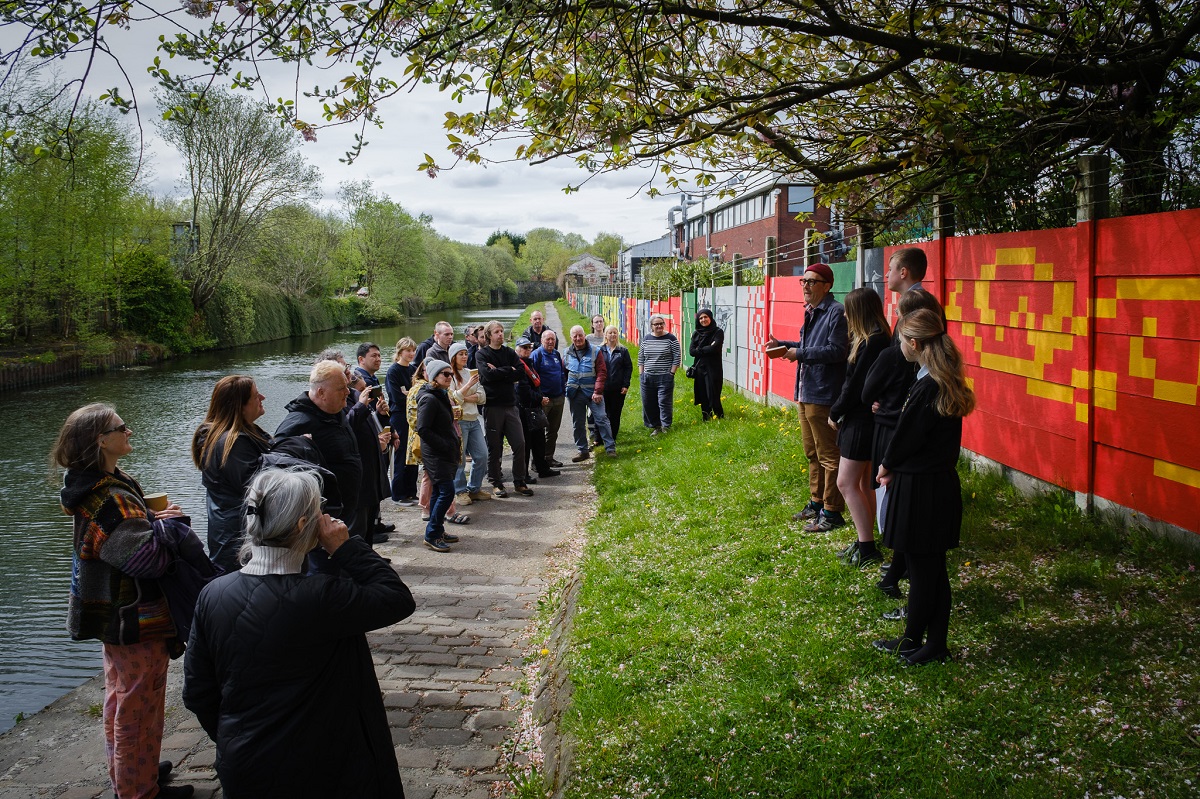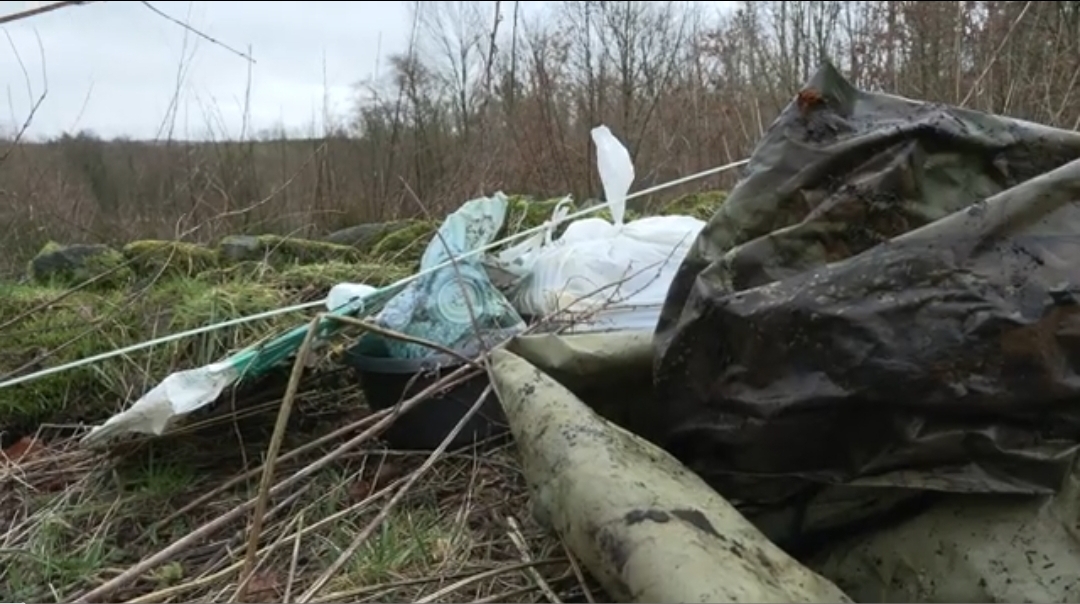Boots on the ground: Women’s grassroots football in Accrington
There are many success stories to come from Accrington Stanley Women - a club that still operates independently from the men's team
Like many 18-year-olds at the end of this summer, Maisy Dooley is preparing to leave home for the first time. Unlike most of her peers though, her new university campus is over 4,000 miles away and she earned her place with her feet rather than her grades.
Dooley had only been playing with Accrington Stanley Women FC for a few months when she was given the opportunity to fly to Dallas to take part in a tournament.
“We were unsuccessful in the tournament and then we had a choice to play a friendly. At the end of that game two people came across to me and wanted me to go and play for Jefferson College,” says Dooley, who moved to Accrington Stanley a year ago from Droylsden, where she had played from age 10.
Jefferson College, in St Louis, Missouri, offered her a 50% scholarship and Dooley says her family is still working out how to fund the other 50% for the year she will spend there.
"It was a difficult decision because I’m really close with my family but I couldn’t turn the opportunity down because it’s something that I’ve wanted for my career,” she says.
“It’s my first time away from home, I’ve never lived anywhere else. I’ll be staying on campus in a dorm room sharing with four people but I’ll have my own bedroom. They will be other people who have been scouted – a couple in my dorms are from Germany, one other is from England and the rest are from America.”
Dooley will also study business management while at the university and says she may continue after her first year.
“But in America you can get scouted to go to better colleges and work your way up towards playing for a professional team,” she adds.
Her dream is to play professional football in the UK, but if more opportunities present themselves in America, she says she will take them.
“I just really want a career in football – I want to strive to be the best I can be and put everything I’ve got into it.”
Dooley’s is just one of many success stories to come out of Accrington Stanley Women and, as club chair Sami Smithson is keen to stress, many of them can’t be measured by trophies or scores.
This year the first team placed third in the North West Women’s Regional League table, which Smithson says was “disappointing”. She had hoped for at least second behind Mancunian Unity which “ran away with the league”. But there were six losses on the table which was more than she hoped.
The main challenge the women faced, she said, was struggling to commit to the team while balancing their work and personal lives.
“Everyone's always got their eyes on the Lionesses and the first teams and the trophies, but actually, the role of a grassroots football club, which is still what we very much are, is much bigger than that. We’ve got a bigger role to play in society.”
The mental health and physical health benefits of playing football are at the centre of the club’s objectives, she adds. And hundreds of girls benefit from improved communication, confidence, teamwork, and make friends outside of school, from different cultures and different backgrounds.

Maisy Dooley
Smithson, a former squadron leader in the RAF, and ex GB Judo International champion, joined the team in March 2023 and, reflecting on her first full season, points to multiple other achievements.
“We've grown massively in terms of numbers – I think we've topped at 220 participants across age groups from under nines all the way up to two open age teams.
“The reserve team has been really important in developing our girls once they have turned 16. By the end of the season, these young girls were getting 10-0 victories. That's the talent. It shows that the process is working and that's really exciting for us.”
As well as Dooley, two other girls were scouted in America but will have to wait until they turn 18 to take up any opportunities there.
“And we make sure that we retain a focus on the wider benefits of sport and physical activity,” says Smithson. “Some of these girls will have a career with football which isn't a down the performance route. One of our objectives is to make sure that we have a pathway for female coaches, for female officials, referees and committee members.
“We're committed to making sure that we have girls who come through those routes when they might not have the same passion or drive to keep playing at a competitive level, or they just want to focus on enjoying the game. They might be balancing family life, careers, or education but there's a place for them to still have football in their life.”
The popularity of women’s football has boomed in recent years with the number of women and girls’ teams doubling since 2017. The largest increases came in the 2022-23 season, when almost 1,500 new teams were registered in the wake of the Lionesses win at the UEFA Women’s EUROs.
“The power football has to change lives has been opened up to a brand new generation of women and girls over this historic period,” Baroness Sue Campbell, director of the women's game at England Football said earlier this year.
“The legacy of the Lionesses victory has transcended society, turning inspiration into participation with more women and girls stepping forward to play, whilst leaving the game in a better place for the generations to come.”

Maisy Dooley
On the pitch and in the stands, Smithson says the women’s game is taken extremely seriously.
But the infrastructure around it is “rapidly trying to play catch up” with the game’s popularity.
“It's got a long way to go in terms of the governance, the rules and making sure that the background organisations are able to support us at the same level as the men and boy’s games.
“With the rapid rate that women and girls’ football is growing, the resources are exhausted. There isn't enough pitch space, we're the first to get kicked off a booking.
“In the winter a lot of the women's fixtures get cancelled, especially if the pitches have been deemed suitable to play on a Saturday, then often on a Sunday afternoon, they're not. Not all of our fixtures were even played this season, because time ran out in the season, and there were so many games that were postponed.”
Despite sharing a name, ASWFC is independent of men’s team which was relegated to League Two last year and faced another difficult season this year.
“We're one of the very few grassroots women’s clubs that has stood completely independently,” says Smithson. “In the North West recently, there's been a few clubs that have been then subsumed by men's clubs. Because there's funding now available there is an incentive for the men's club and women's club to come together under that one big umbrella.”
She says it would be “a dream” for her if the men’s club did well enough to rise through the ranks and attract funding to join forces with the women’s club.
“For now, we've got a really good working relationship. Managing director David Burgess mentors me and is very supportive of the women's club. To have a male ally, who’s been in football leadership for so long, guiding and supporting you is so valuable.”
But for the girls in the club, Smithson, who’s 47, says female role models are vital.
“I've led a very varied life and I want everyone to have that opportunity to choose – to not have to follow one path that's dictated by someone else, and to know that there are other paths available,” she says.
“For women of my generation there was certainly that pressure that success was largely determined by whether or not you got married and had children. Well, that doesn't have to define you. Your purpose can be bigger than that. It is an important thing for some people. For others it's not.
“Having that choice, having that opportunity, and not being shoved down a particular route because you’re a girl will broaden your horizons. I think that's part of our social responsibility.”
And it’s a big one, considering the club fundamentally relies on volunteers to keep going.
“It's easy for people to say this should be better, that should be better, but these people are trying their best to improve the women and girls’ game in their free time. There's a lot that's reliant on volunteers and trying to to get that in the current economic climate, when people are working hard, taking on second jobs, is tough.
And demand is only growing. In June the club hosted open sessions for girls to come and see how they liked the club. In the first seven days of announcing them the club received 140 enquiries.
"It's brilliant if your biggest problem is that you've got too many girls,” says Smithson. “But we just can’t keep up with the demand. We just need to have the facilities to be able to continue to deliver for them.”
Smithson says the club is looking into funding streams for health and wellbeing projects so staff could be paid in the future. In the meantime she is calling on members of the community to come forward and volunteer.
“I'd love more female coaches. I'd love more volunteers to help us with safeguarding and welfare. I need someone to help me with the Dallas trip next year – we want to take two teams, not one.
“There's so much more that we can deliver if we've got people who can help us along the way, because enthusiasm isn't something that we're short of. It's just capacity. We've got the vision and we've got the drive. We just need more boots on the ground to help us.”
The Lead is now on Substack.
Become a Member, and get our most groundbreaking content first. Become a Founder, and join the newsroom’s internal conversation - meet the writers, the editors and more.





